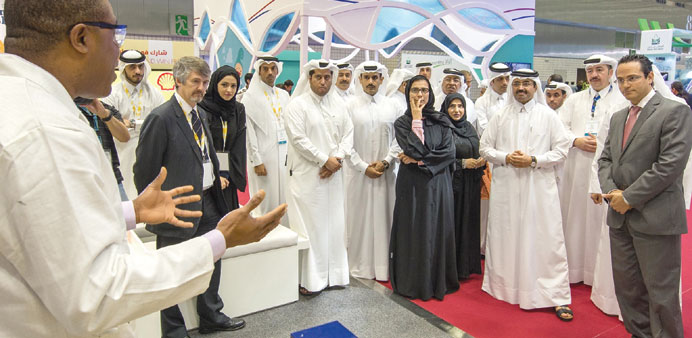|
Qatar Shell has highlighted the energy sector’s role in water consumption and conservation at the eighth Qatar Petroleum Environment Fair, which is being held at the Qatar National Convention Centre. |
Wael Sawan, chairman of Qatar Shell Companies, said: “We are extremely proud to support QP at the environment fair. Protection of the environment is everyone’s responsibility. With our partner, QP, we hope the fair helps educate the public about the importance of water and the challenges the world faces in sustainable water use.”
According to Sawan, “Water is a vital natural resource that is often taken for granted. Today, there is strong evidence of substantial and increasing pressure on the world’s freshwater supply. This makes the management of water resources a concern for society, including governments and energy producers.”
Sawan said the Pearl Gas-to-Liquid (GTL) plant “not only uses water but produces as much water as GTL products”.
He explained that the chemical reaction that occurs when synthesis gas passes over catalysts in the plant produces water as well as the building blocks for GTL products. The amount of water that Pearl GTL produces makes it possible to run the plant without drawing on Qatar’s scarce natural freshwater resources or on seawater.
“Shell uses all of the produced water as part of a strategy to prevent any liquid waste discharge from the plant. The water-processing facility at the Pearl GTL plant recovers and treats all the industrial process water,” Sawan said.
He explained that the facility has the capacity to treat 280,000 barrels of water a day and has flotation units, biotreaters, ultra-filtration units, reverse osmosis units, evaporators and crystallisers.
The facility is comparable to a plant for a town of 140,000 people, Sawan added.
At the Qatar Shell booth, visitors watched an expert conduct experiments that explained the forms of microscopic organisms used in the biochemical cleaning of water.
The booth also features a “bike race competition,” an interactive game that enables children to “race” with other students using a special kind of stationary bicycle that generates energy. Children also participated in an interactive quiz on the future of energy and the environment.

